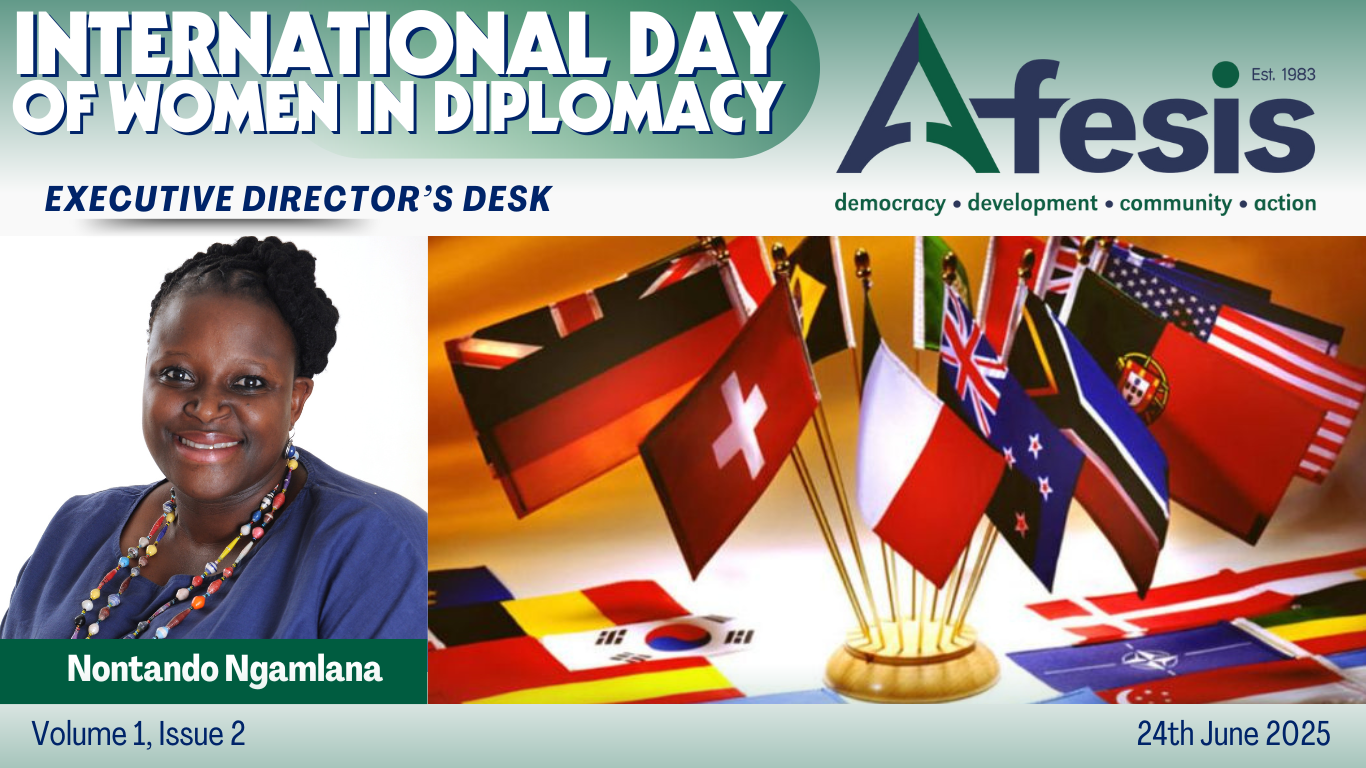EXECUTIVE DIRECTOR’S DESK:
Today, on the United Nations International Day of Women in Diplomacy, Afesis stands in solidarity and celebrates the invaluable contribution of women who serve on the frontlines of global diplomacy. As an organisation dedicated to strengthening local governance, deepening democratic participation, fostering access and inclusion, and dismantling urban and spatial inequality, Afesis profoundly recognises the critical role that women play in shaping a. more just and equitable world.
This day is a powerful reminder of what it means to break barriers and challenge the status quo. For too long, the diplomatic arena, like many spheres of influence, has been predominantly male. The presence of women in diplomacy is not merely about achieving gender parity; it is about enriching the very fabric of international relations with diverse perspectives and with a deeper understanding of the multifaceted challenges facing the world.
Generally, women bring unique insights into spaces and roles – including in diplomacy – often rooted in lived experiences, that can lead to more inclusive and sustainable solutions to global conflicts, humanitarian crises, and developmental challenges. Their skills in negotiation, mediation, and bridge-building are indispensable in fostering peace, promoting human rights, and advancing sustainable development.
Afesis believes that true democratic participation and inclusion extend beyond our domestic borders. Just as we advocate for marginalised voices to be heard at home, we champion the empowerment of women to hold positions of power and influence on the international stage as well. Their voices are essential in addressing the very inequalities we strive to dismantle, both locally and globally. We therefore align with the United Nations’ efforts to foster a world where diplomacy truly reflects the diversity of its people, and where women’s leadership is not just recognised, but celebrated and amplified.
Ms. Nontando Zintle Ngamlana is the Executive Director at Afesis.
